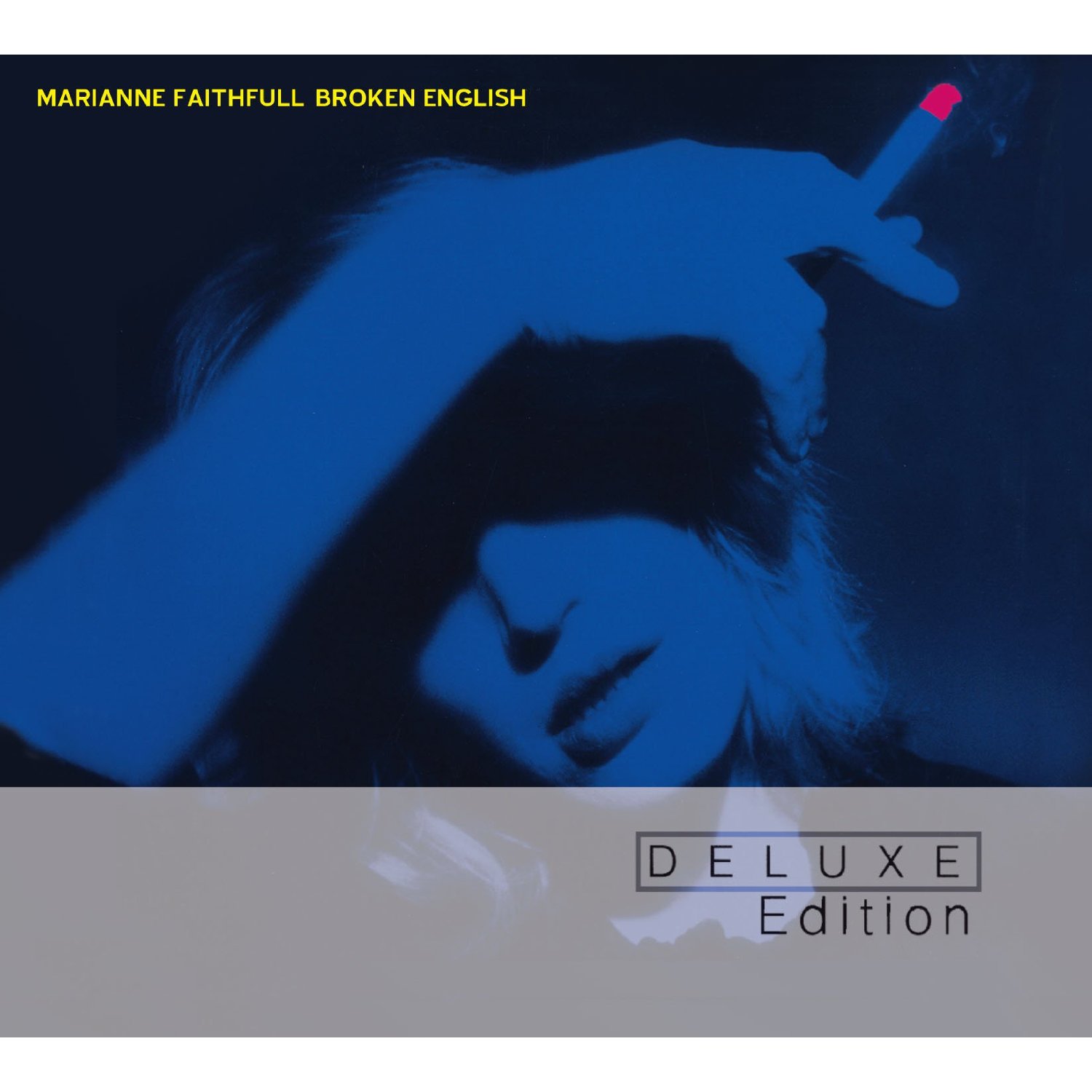
Album Review
Marianne Faithfull – Broken English
Marianne Faithfull has led a quite amazing life. She has been in the spotlight for almost fifty years, during which she has released more than 20 albums, earned acclaim as an actress and infamy as a rock chic, published two volumes of autobiography and survived anorexia, miscarriage, drug addiction, homelessness and cancer. It’s a story like no other.
Perhaps Faithfull’s finest musical performances came on her classic 1979 album Broken English. The melodic vocals on her earlier work were replaced with a much deep voice, raw and emotional, clearly affected by laryngitis as well as years of smoking, drinking and drug use. And the tone was different too, with a new defiance influenced by the punk and new wave music of the time, but also by her own struggles.
Faithfull’s definitive work is now being re-released. And as well as the album the deluxe package also contains the original session recordings, recently found in the Island Records vaults, a never before released Derek Jarman directed short film of three tracks and several remixes.
It is well worth revisiting this fine album, a seminal work from a very different time. Marianne Faithfull’s low and sultry voice brings life to notable covers as well as her own songs, and even 24 years after its release it still sounds fresh and modern. The studio session recordings, made before Steve Windwood’s keyboard and synthesiser parts were later mixed in, are if anything more powerful, giving more space for that great voice to shine.
There are some fine songs on Broken English, not least the title track which was inspired by the frequent terrorist attacks of the time. Guilt sees Faithfull reflect on her strict Catholic upbringing in a slow and powerful way, the dark lyrics perfectly delivered. What’s The Hurry reflects the desperate day to day struggles of a drug addict, something she knows all about.
Faithfull’s cover of John Lennon’s wonderful Working Class Hero is slower in tempo than the original, her powerful vocal delivery adding a menacing edge over a jagged guitar sound. But the stand out track is the ultimate version of The Ballad Of Lucy Jordan. The brilliantly told story of a suburban housewife’s despair is given a haunting and disturbing treatment with a twin tracked vocal that is near perfection.
The closing track of the album was controversial at the time of the original release. Why’d Ya Do It? is a bitter, graphic tirade from a woman reacting to her lover’s infidelity. The lyrics by poet Heathcote Williams include explicit references to oral sex and this led to its exclusion from the album in some countries. It may not sound extreme by today’s standards though, and Faithfull’s portrayal of anger and betrayal is quite majestic.
Also included is a 1982 version of the fabulous Sister Morphine, written by Faithfull with messrs Jagger and Richards and originally released in 1969, as well as the single versions of the album’s title track.
Broken English is a fine album, and this well packaged re-release should bring it to the ears of more than a few new fans. In 1979 this was a rare example of an angry rock record made by a woman. Its cathartic and raw emotional songs are haunting and hypnotic, but above all authentic given Faithfull’s own life story. It was a significant album at the time and is still well worth listening to now, both because of its historical importance, but also for the immense quality of Marianne Faithfull’s vocal performances.
Venue: Broken English
Support Band: Commercial Marketing



